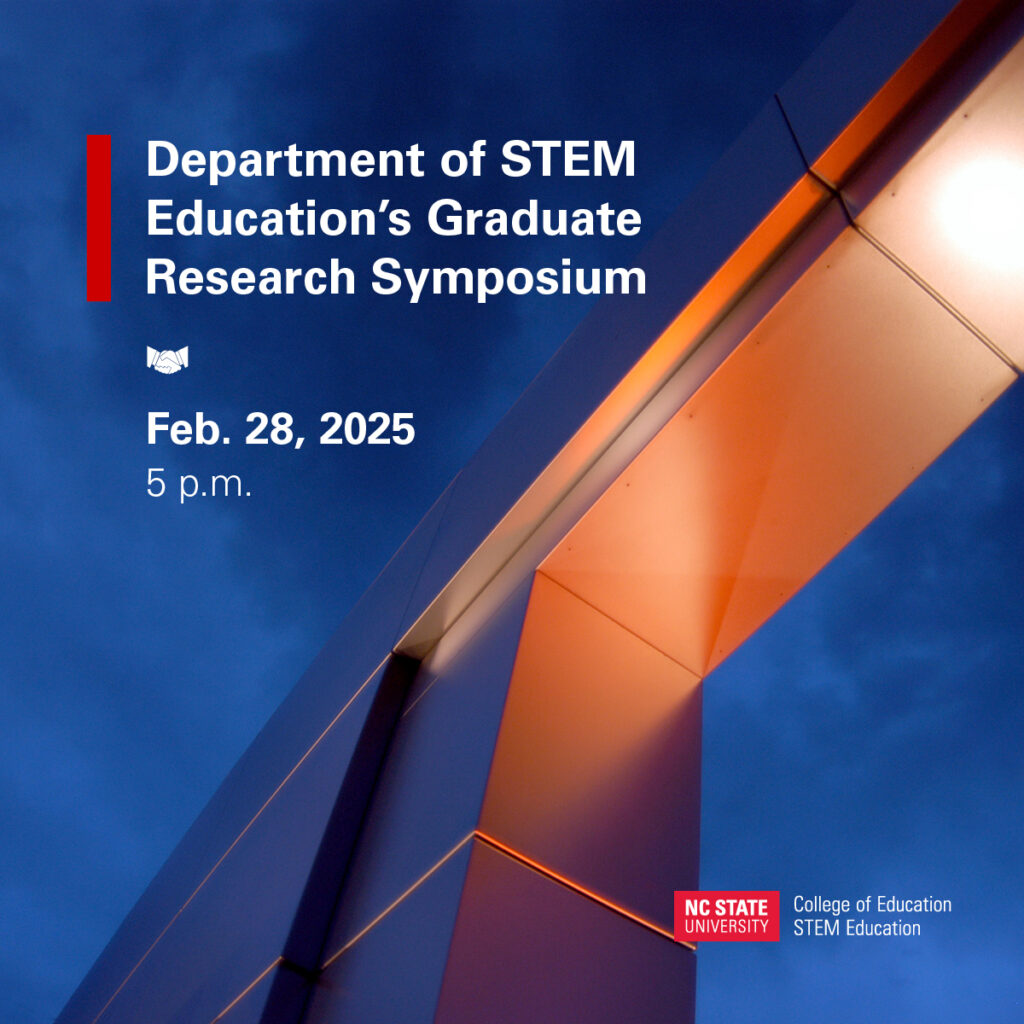Graduates of our Ph.D. in Learning and Teaching in STEM: Engineering and Technology Education concentration become leaders in engineering and technology education in K-12 formal and non-formal settings. Through scholarly pursuits in the field, learning and teaching, and public policy, they take positions as scholars, supervisors, teacher educators, non-formal science/engineering educators, entrepreneurs, designers and faculty members in higher education institutions.
Concentration Description
This Ph.D. in Learning and Teaching in STEM: Engineering and Technology Education concentration is for students who wish to become leaders through scholarly pursuits in engineering and technology learning, teaching and practice. In addition to the essential habits of mind and practice unique to engineering and technology, the program will also promote 21st century technology skills that are necessary for influencing public policy, educational reform and promoting technological literacy. Engineering education is a rapidly expanding field in the post-secondary arena and in K-12 settings. The Next Generation Science Standards and the National Standards for Technological Literacy include engineering as an essential learning focus.
This degree within the College of Education combines current engineering and technology education faculty from both the College of Engineering and College of Education. Through these partnerships, this concentration will offer innovative specializations in areas of: K-12 outreach education, post-secondary teacher education and instruction, engineering education research and community college service.
Graduates of this cross-disciplinary concentration are prepared for successful positions across engineering education and technology education enterprises, including: engineering faculty positions in all types of universities, educational research; university assessment staff, engineering policy, industry training management, and K-12 district or local area specialists.
Upcoming Events
Admission Requirements
Please note: If you are currently enrolled in a master’s degree program in our College of Education and are interested in pursuing a Ph.D., you must formally apply to the program through the Graduate School.
- 3.0 GPA
- Strong writing and analytic skills
- GRE test scores (restored for 2023-2024 admission) for applicants applying for all PhD programs in the STEM Education Department
- Desire to conduct research
- Ideally have already completed 24 credit hours within a discipline related to technology, engineering or design at the undergraduate or graduate level
- Three recommendations from people who know your academic record and potential for graduate study
- Official transcripts of all post-secondary education
- Personal essay (one to two pages) describing your career experiences, future personal goals and how a degree in the desired discipline will affect your career goals. Applicants should indicate how their research interests can benefit from faculty’s research foci. Include a resume (three pages or less) of experience: positions held, internships, volunteer efforts, publications, prior research and skill sets.
Course of Study
All doctoral degrees in the College of Education require a minimum of 72 graduate credit hours beyond the bachelor’s degree. Most doctoral programs in the College of Education require a minimum of 60 graduate credit hours beyond an approved master’s degree.
This program can be accomplished either part-time or full-time. Full-time students can complete the program in three to four years. Engineering & Technology Education program area of study courses are typically in a two-year cycle, and a new cycle begins in the fall semester.
Please note: If you are currently enrolled in a master’s degree program in our College of Education and are interested in pursuing a Ph.D., you must formally apply to the program through the Graduate School. Students who continue directly from our NC State Master’s program into the Ph.D. (without a break in enrollment) may transfer all 36 credit hours. *We understand the hardships some students may experience, but we are unable to offer fee waivers
Curriculum
Additional Information
STEM Graduate Student Handbook
Engineering and Technology Education 2023-2024 Doctoral Students

